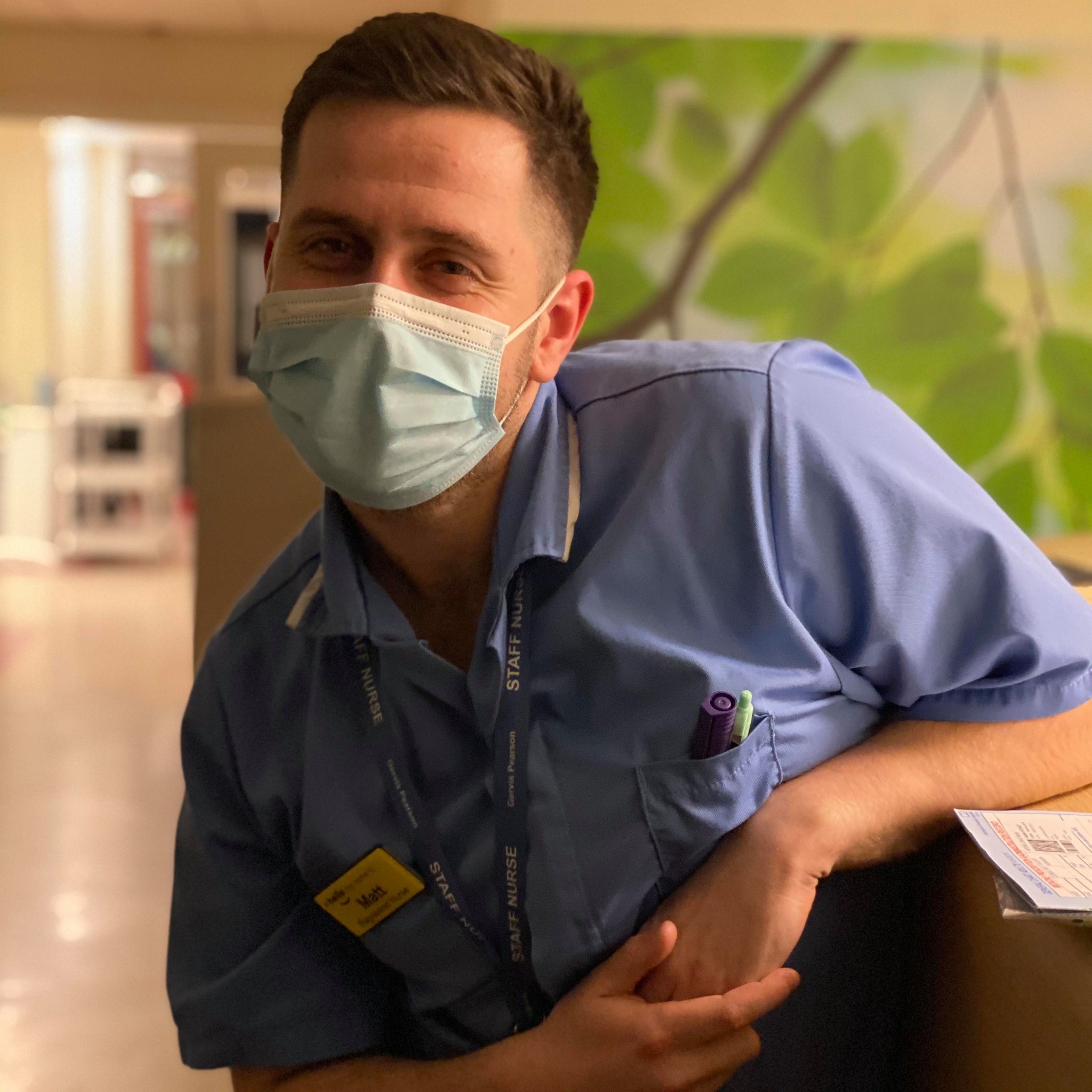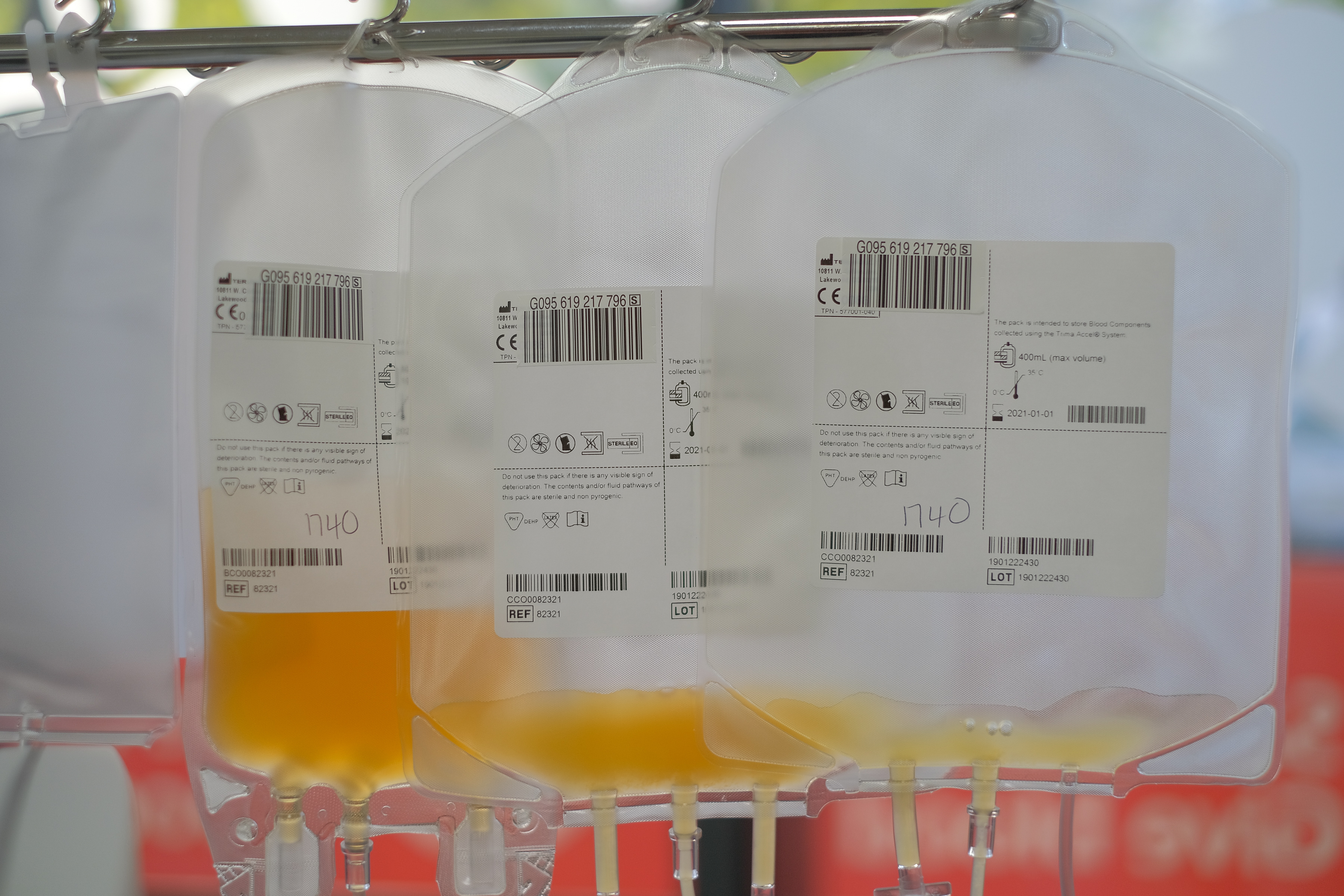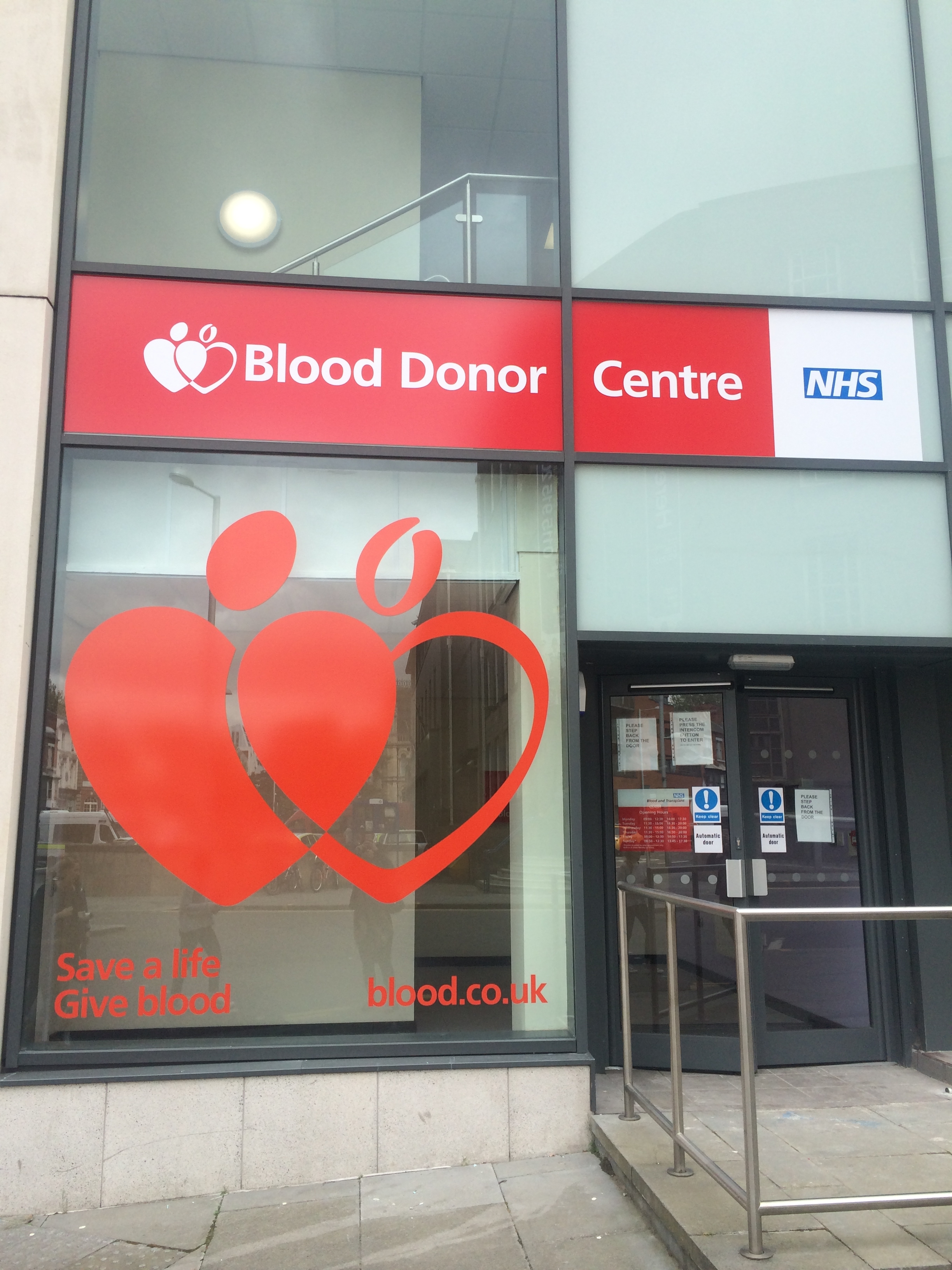Platelet donation
Find out more about switching to platelets
Matt, a 29-year-old oncology nurse, is a platelet donor who knows just how vital these components are for his patients.
Since becoming a nurse I have seen first-hand the effects of blood and platelet donation, particularly whilst working in an oncology unit. Cancer patients are more likely to require blood and platelet transfusions because of complications of their cancer and the side effects of their treatments such as chemotherapy.
I have always been passionate about helping as much as I can. Donating blood and platelets doesn’t take up much of my time and it’s a rewarding thing to do that makes a tremendous difference. I started donating blood when I was 17 and switched to donating platelets in 2013. Currently I donate two doses of platelets and one dose of plasma at each session. This year I achieved my 200th credit!

one day, I’m sitting in the donor chair donating platelets, then the next day, I’m actually giving platelets to someone with cancer
My uncle Paul was the sole reason I became a platelet donor. He was diagnosed with acute myeloid leukaemia (AML) in 2010. I always wanted to do more; at the time I was donating whole blood which you can donate once every 12-16 weeks. After enquiring about platelets, I was told I would be able to donate more frequently. It only takes two hours out of my day, and it contributes a lot to those who need it, like my uncle.
 In my current role, I administer blood to patients. It’s quite overwhelming to think that, one day, I’m sitting in the donor chair donating platelets, then the next day, I’m actually giving platelets to someone with cancer.
In my current role, I administer blood to patients. It’s quite overwhelming to think that, one day, I’m sitting in the donor chair donating platelets, then the next day, I’m actually giving platelets to someone with cancer.
(Picture: Platelets being collected)
With it being so close to home, I’ve always made it a priority to donate as much as possible. I book multiple appointments at a time, which has been really convenient. The 24-hour helpline where you can book appointments is also an advantage. The management team on my ward have been really accommodating with the flexibility of fitting these appointments around my shifts.
The donation itself is a breeze. The staff at Nottingham Donor Centre are brilliant and incredibly helpful. I’ve been there so long that I am on first name terms with all the staff, which is nice. The rapport you develop over the years also encourages me to keep going and donating. I am an orange Club biscuit, plus a hot chocolate combo kind of donor!
 I have always praised NHS Blood and Transplant for the text message donors receive after donating blood, telling them where their donation has been used. That lovely touch brightens up my day, knowing that my donation has directly helped someone who needs it most.
I have always praised NHS Blood and Transplant for the text message donors receive after donating blood, telling them where their donation has been used. That lovely touch brightens up my day, knowing that my donation has directly helped someone who needs it most.
(Picture: Nottingham Donor Centre)
I think the first time I donated I was a little nervous. Normally a whole blood donation takes 10-15 minutes, but the platelet donation takes around two hours. Once I got that first one out of the way, I have been completely fine since. The process is explained thoroughly by the staff and the option to ask questions at the end is always there. The team at Nottingham have always been very easy to talk to and very knowledgeable. A massive shout out must go to the whole team, but particularly, Sally, Sarah, Catherine and Sharna, who have been my donor carers for years. They really are wonderful.
My family have always been proud of me regarding everything I do or have achieved. They have been especially grateful when it comes to why I donate – because of the link to my uncle.
It only takes two hours out of my day, and it contributes a lot to those who need it, like my uncle.
Donating blood or platelets is an altruistic act which benefits those who most need it. The need for platelets will always be there and the shelf life of them is considerably less than that of whole blood. You will be able to donate platelets more frequently and your one donation of platelets could end up helping three adults or even 12 infants! You will also be joining an exclusive group of some 10,500 platelet donors if you do!